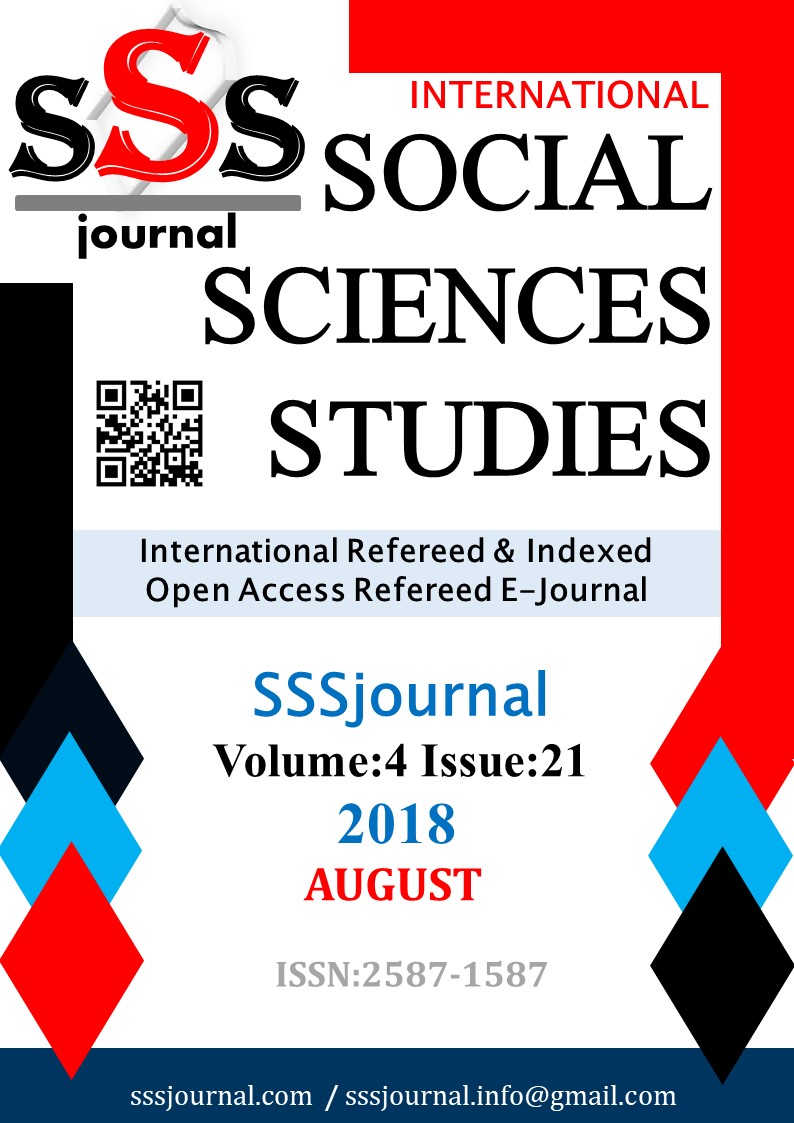Author :
Abstract
Din felsefesinin son yüzyılda en çok gündeme gelen konularından biri de dinî tecrübedir ve en genel anlamıyla, kutsal ile karşılaşma tecrübesi olarak tanımlanabilir. İnsanlık tarihi kadar eskilere dayanan bir fenomenin, tarihin bir döneminde, terim olarak felsefenin gündemine girmesinde ilgili dönemin etkisini kabul etmek gerekir. Bir terim olarak dinî tecrübe de kullanılmaya başlandığı dönemin dinî ve felsefî zihniyetini yansıtmaktadır. Din felsefesi kitaplarında dinî tecrübe başlığı altında pek de değinilmeyen terimleşme sürecini işleyen bu makale, belli bir dönemin bakış açısı tarafından terime yüklenen anlamların, genelleme yapılarak tüm dinlere uygulanmasının yetersiz ve hatta kusurlu olduğunu iddia etmektedir.
Bir terim olarak 19. yüzyılda felsefe literatürüne girmiş olmakla birlikte, dinî tecrübenin terimleşme sürecinin kökenleri Reform dönemine ve o dönemdeki mistisizmden destek alan Katolik eleştirilerine kadar dayanır. Doğuşu itibariyle, Hıristiyanlık bağlamında kullanımı Protestanlığa özgü olan dinî tecrübe, zamanla tüm dinler için kullanılır hale gelir.
Reform ile birlikte başlarda en sahici doğrular olarak kabul edilen Tanrısal tecrübeler, süreç içerisinde Aydınlanmanın da etkisiyle; akıl dışı, sebebi açıklanamayan, başkalarına aktarılamayan, epistemik değeri tartışmalı, anlık, aktarılamaz, sıra dışı yaşanmışlıklara indirgenmiş olarak literatürdeki yerini alır.
Keywords
Abstract
Religious experience has been one of the most popular topics of the philosophy of religion in the last century. In the most general sense, it is "the experience of meeting with the holy." This phenomenon is as old as human history. Such an old subject has entered the agenda of philosophy as a term in a particular period. The influence of this period cannot be denied. Religious experience as a term reflects the religious and philosophical mentality of the period in which it began to be used. This article deals with being a term of the religious experience. This work claims that it is a product of a particular period and there are some meanings given to it and giving these meanings for other religions is problematic.
Though it has entered into the literature of philosophy in the 19th century, it is based on the period of reform. The first use of the term is specific to Protestantism, but the latter was used for all religions.
Along with the reform, the supernatural experiences were regarded as the most authentic truths. It takes its position in the literature as being influenced by the Enlightenment, accepted as irrational, unexplainable, its epistemological value is controversial, instant, untransferable, extraordinary experiences.
Keywords
- Akarsu, Bedia. Felsefe Terimleri Sözlüğü. Ankara: Türk Dil Kurumu, 1979.
- Akarsu, Bedia. Felsefe Terimleri Sözlüğü. Ankara: Türk Dil Kurumu, 1979.
- Aliy, Abdurrahman. Teolog Filozof F. D. E. Schleiermacher: Yaşamı, Eserleri, Felsefesi. Ankara: Elis Yayınları, 2012.
- Aslan, Adnan. Din Felsefesine Giriş. İstanbul: Ufuk Yayınları, 2015.
- Aydın, Mehmet. Din Felsefesi. İzmir: İzmir İlahiyat Vakfı Yayınları, 2010.
- Ayverdi, İlhan. “Görgü”. Misalli Büyük Türkçe Sözlük. İstanbul: Kubbealtı Neşriyat, 2008.
- Cassirer, Ernst. Kant’ın Yaşamı ve Öğretisi. Çeviren Doğan Özlem. İstanbul: İnkılap Yayınevi, 1996. Cevizci, Ahmet. Paradigma Felsefe Sözlüğü. İstanbul: Paradigma Yayınları, 2010.
- Clauson, Gerard. “Kör-”. An Etymological Dictionary of Pre Thirteenth Century Turkish. London: Oxford University Press, 1972.
- Erdemli, Atilla. “Friedrich Daniel Ernst Schleiermacher: Felsefe Tarihçisi Gözüyle Bir Tanıtma”. Felsefe Arkivi, sy 28 (1991): 243-76.
- Ertürk, Ramazan. Sufî Tecrübenin Epistemolojisi: Çağdaş Bir Yaklaşım. Ankara: Fecr Yayınları, 2004. ———. Varoluşsal Din Felsefesine Giriş. İstanbul: Yarın Yayınları, 2012.
- Gadamer, Hans Georg. Hakikat ve Yöntem. Çeviren Hüsamettin Aslan ve İsmail Yavuzcan. İstanbul: Paradigma Yayınları, 2009.
- Gökberk, Macit. Felsefe Tarihi. İstanbul: Remzi Kitabevi, 1999.Gündüz, Şinasi. Hıristiyanlık. İstanbul: İsam Yayınları, 2013.
- Hepburn, Ranold W. “Religious Experience”. Editör Donald M. Borchert. The Encyclopedia of Philosophy. Farmington Hills: Thomson Gale, 2006.
- İbn Manzur. Lisanu’l- Arab. Beyrut: Daru Sadr, 1994.
- Jay, Martin. Deneyim Şarkıları. Çeviren Barış Engin Aksoy. İstanbul: Metis Yayınları, 2012. Kuehn, Manfred. Kant: A Biography. Cambridge: Cambridge University Press, 2001.
- 38 Ramazan Ertürk, Varoluşsal Din Felsefesine Giriş (İstanbul: Yarın Yayınları, 2012), 60-73.
- Macquarrie, John. “Pietism”. Editör Donald M. Borchert. The Encyclopedia of Philosophy. Farmington Hills: Thomson Gale, 2006.
- Olgun, Hakan. Sekülerliğin Teolojik Kurgusu: Protestanlık. İstanbul: İz Yayıncılık, 2006.
- Peters, Francis E. Antik Yunan Felsefesi Terimleri Sözlüğü. Çeviren Hakkı Hünler. İstanbul: Paradigma Yayınları, 2004.
- Reçber, Sait. Tanrıyı Bilmenin İmkân ve Mahiyeti. Ankara: Kitabiyat Yayınları, 2004. Sami, Şemseddin. “Görgü”. Kamus-i Türki. İstanbul: İkdam Matbaası, 1901.
- Sönmez, Bülent. Modern Batı Düşüncesi: Hıristiyanlık ve Din Algısı. Konya: Nüve Kültür Merkezi, 2008.
- Şener, Habib. John Locke ve David Hume: Din Felsefesi Üzerine Karşılaştırmalı Bir İnceleme. Ankara: Ötüken Neşriyat, 2014.
- Tan, Necmettin. İmana Yer Açmak: Kant’ın Bilgi ve İman Felsefesi. İstanbul: İz Yayıncılık, 2014.Tarnas, Richard. Batı Düşüncesi Tarihi. Çeviren Yusuf Kaplan. İstanbul: Külliyat Yayınları, 2013.
- Taves, Ann. “Religious Experience”. Editör Lindsay Jones. Encyclopedia of Religion. Farmington Hills: Thomson Gale, 2005.
- Taylan, Necip. Düşünce Tarihinde Tanrı Sorunu. İstanbul: Şehir Yayınları, 2000.
- Williams, Raymond. Anahtar Sözcükler. Çeviren Savaş Kılıç. İstanbul: İletişim Yayınları, 2012.
